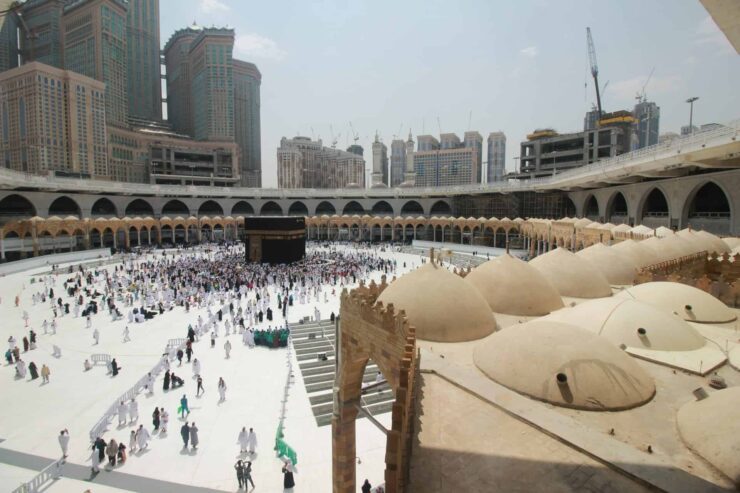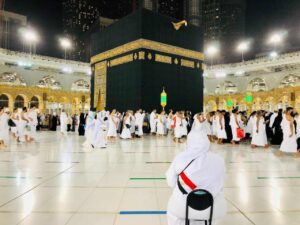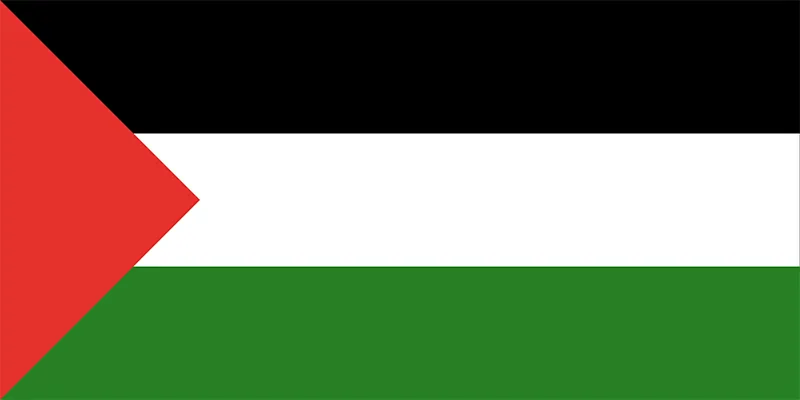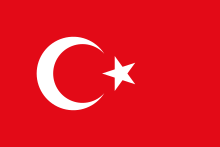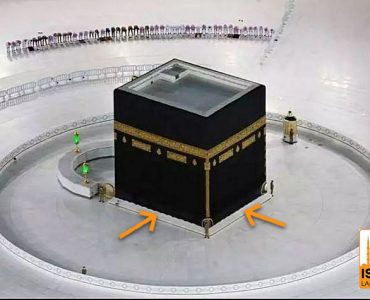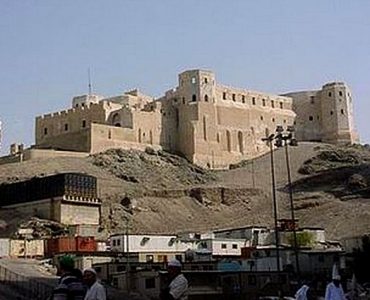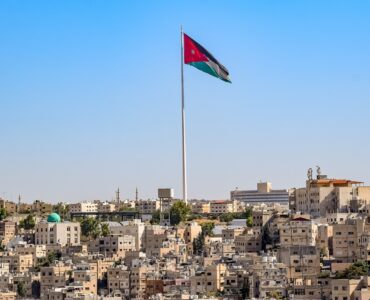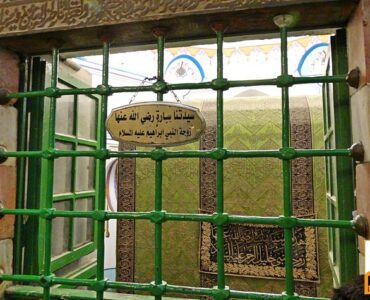Hajj is one of the Five Pillars of Islam and is obligatory for every Muslim who is financially and physically capable of undertaking this pilgrimage to Mecca at least once in their lifetime.
The first four pillars include shahada, prayer, zakat and fasting.
Hajj Badal is a selfless act of devotion that not only fulfills a religious duty but also carries great rewards. If you are performing Hajj Badal for the first time, seeking guidance is important to ensure you are not making any mistakes.
Let’s take a look at what this religious act is and its benefits:
What is Hajj Badal?
Hajj Badal, also known as “Proxy Hajj,” is a concept within Islamic pilgrimage that allows a Muslim to perform Hajj on behalf of someone else who cannot do so themselves. This pilgrimage is often offered as a service that people can pay for.
The concept is based on the understanding that some Muslims might be unable to make this journey due to illness, old age, or other physical or financial constraints.
In such cases, they have the option to designate someone to perform Hajj Badal.
This person, known as the “representative,” carries out the pilgrimage on behalf of someone else, as if they were the person who originally intended to perform it.
Qurbani in Hajj-e-Badal is also essential. It is offered during Dhul-Hijjah, specifically on the 10th, 11th, or 12th day of the month. A person not performing Hajj can also partake in Qurbani as an act of worship.
As part of their preparation for Hajj, devout Muslims often calculate their zakat contributions, ensuring they fulfill their religious obligation of giving to the needy and purifying their earnings.
Can You Perform Hajj on Behalf of a Dead Person?
Anyone can perform Hajj on behalf of someone who has passed away. Do inform the family about your good deed so that they know the deceased’s debt to Allah (SWT) has been paid off.
Is a Proxy Hajj Allowed in Islam?
A proxy Hajj is allowed in Islam only if the pilgrim performing the Hajj has fulfilled their obligations. They cannot perform a proxy Hajj if they haven’t undertaken the sacred journey themselves.
Remember, you should not simultaneously perform Hajj for yourself when signing up for Hajj Badal service. It’s essential to keep these acts separate.
Who Can Perform Hajj-e-Badal?
The proxy performer must be a practicing Muslim who understands the rituals and significance of Hajj.
The representative doesn’t need to be a spouse, child, relative, or friend. In fact, a complete stranger can also perform hajj without permission from the deceased’s loved ones.
The individual who is unable to perform Hajj should provide written consent to their chosen proxy. This document should clearly state the proxy’s name, the name of the person on whose behalf the Hajj is being performed, and the specific details of the Hajj, including the year and type of Hajj (Tamattu, Ifrad, or Qiran).
Throughout the pilgrimage, the proxy must maintain the intention that they are carrying out these actions on behalf of the person they are representing.
When they perform hajj, their prayers and supplications should be focused on the individual who cannot be physically present for Hajj.
Can I Perform Hajj for My Dead Mother?
A woman from the Juhaina Tribe approached Prophet Muhammad (PBUH) with a problem. She said, “My mother had vowed to perform Hajj but died before fulfilling her dream. Can I perform Hajj on her behalf?”
Prophet Muhammad (SAW) said, “Had there been a debt on your mother, would you have paid it or not? Perform Hajj on her behalf and pay Allah’s debt as He has more right to be paid.”
Hadith from Ibn Abbas R.Anhuma
Quran and Hadiths About Hajj-e-Badal
وَلِلَّهِ عَلَى النَّاسِ حِجُّ الْبَيْتِ مَنِ اسْتَطَاعَ إِلَيْهِ سَبِيلًا
“And [due] to Allah from the people is a pilgrimage to the House – for whoever is able to find thereto a way.”
Surah Ali ‘Imran: 97
A woman from the Khath’am Tribe asked Prophet Muhammad (SAW), “O Allah’s Apostle! The obligation of Hajj enjoined by Allah on His devotees has become due on my father, and he is old and weak, and he cannot sit firm on the Mount; may I perform Hajj on his behalf?”
The Prophet replied, “Yes, you may.”
Sahih Bukhari (Volume 2, Book 26, Number 589)
Prophet Muhammad (SAW) heard a man saying, “O Allah! Here I am in response to Your call on behalf of Shabrumah.”
The Prophet Said, “Have you performed your own Hajj?”
The man replied, “No.”
The Prophet then told him, “You must perform Hajj on your behalf first, and then for Shabrumah.”
Ibn Abbas
What Are the Benefits of Hajj Badal?
Performing Hajj Badal is a profound expression of love and compassion. It shows that one person cares deeply for another’s spiritual well-being and is willing to go to great lengths on their behalf to ensure their religious obligations are met.
Let’s take a look at the benefits it offers:
- Fulfillment of a Religious Duty
One of the primary benefits of Hajj Badal is fulfilling a religious obligation. When you perform Hajj on someone’s behalf, not only do you fulfill a sacred duty but also receive the same reward as a Hajji does.
- Giving Back to the Elderly
Hajj is a physically demanding journey involving long walks, intense crowds, and other strenuous activities, mainly throwing stones at Satan.
For elderly or physically challenged individuals, this can be a daunting task.
This fulfilling feeling of giving back will make you realize that you should be grateful for everything Allah (SWT) has given you.
- Enhanced Spiritual Growth
The person performing Hajj Badal not only fulfills the obligation for another but also benefits spiritually from the journey.
It is an opportunity for them to enhance their faith, seek forgiveness, and draw closer to Allah (SWT). This act of selflessness and dedication to helping others is a source of immense spiritual growth and satisfaction.
- Community Solidarity
Hajj Badal is a beautiful example of community support. It fosters a sense of unity within the Muslim community. When individuals come forward to perform Hajj on behalf of those who cannot, it strengthens the bonds between people and demonstrates the importance of helping one another in fulfilling their religious duties.
- You Teach Your Kids a Valuable Lesson
By practicing Hajj Badal, Muslims help preserve the rich traditions of Islam. It ensures that even in the face of financial and physical challenges, religious obligations remain intact and are passed down through generations.
What is Umrah Badal?
Often people ask what is the meaning of Umrah Badal. The answer to this is similar to the definition of Hajj Badal.
It is called a proxy Umrah, which a person performs on behalf of another.
When performing Umrah Badal, it is essential to have clear intentions. All rituals should be performed keeping the person the proxy is performing Umrah for in mind.
Summary – Hajj Badal
At its core, Hajj Badal embodies the spiritual essence of Islam. It signifies the unity and shared nature of the faith, highlighting the importance of helping one another achieve religious goals.
When planning their pilgrimage to Mecca, many Muslims find it helpful to have a reliable hajj guide to navigate the rituals and ensure a fulfilling spiritual journey.
Hajj Badal begins with making Niyah and donning the Ihram. After performing Tawaf al-Ifadah, a person walks between Safa and Marwa as Hajra (AS) did in search of water.
Next, they stand on the plain of Arafat, asking for God’s forgiveness. They then travel to Muzdalifah to gather pebbles and make their way to Mina to stone Satan.
After the arduous journey, they sacrifice an animal just like Ibrahim (AS) did, promising their obedience and faith in Allah (SWT). Pilgrims then shave their heads – an act that signifies renewal and purification.
Before leaving Mecca, pilgrims perform Tawaf al-Wida. This ritual symbolizes the pilgrims’ farewell to Haram Sharif and serves as a final act of devotion before departing.
While the steps remain the same in Hajj Badal, it’s only the Niyah that changes.

